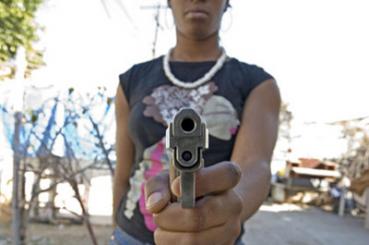BRIDGETOWN — “Pretty but dangerous,” is how one Miami attorney describes our region.
The greatest danger in visiting the Caribbean islands might not be the frequency of crimes against tourists but in the false sense of security the region can inspire.
In bright sunshine, surrounded by a sparkling sea and sand, a traveler who wouldn’t think of walking down a deserted street in the United States or Europe may feel emboldened to wander down risky paths in what seems like paradise.
This may be exactly what led to the murder of a woman in Grenada last weekend after she and her husband walked out of public view and down a deserted stretch of beach.
Just as travelers need to stay vigilant in destinations threatened by ISIS and in their own hometowns, they should not let their guard down in the Caribbean, security and travel experts advise.
Miami attorney Jim Walker, who documents crime in the Caribbean and has represented passengers in lawsuits against the cruise industry, calls the region “pretty but dangerous.”
“U.S. citizens generally think that it is safe to go to these countries for no reason other than cruise ships travel there,” he told Yahoo Travel. “But the murder rates throughout the Caribbean are much higher than anywhere in the U.S., with some countries having a per capita murder rate as high as the U.S.’s most dangerous cities.”
This doesn’t mean a person should avoid visiting the Caribbean. It’s a diverse region with a wide set of risk factors ranging from high to very low, so it pays to do your homework on where you’re going. The bottom line is as long as you take simple precautions, such as staying in areas frequented by tourists, your chances of becoming a victim as one of the 26 million annual visitors arriving here by sea or air are slim.
“I feel very safe in the Caribbean when traveling on a cruise,” cruise expert Stewart Chiron told Yahoo Travel. “I’m confident that with constant security reviews by individual lines that I’ll be as safe as possible.
“There may be ports I’m uncomfortable to disembark and would remain aboard ship. People should always be vigilant regardless of where they travel, and determine the risks on their own as well.”
Chiron gave Nassau in the Bahamas as an example of where he’d exercise caution, and indeed that’s an oft-cited danger zone in the Caribbean. Nassau’s homicide rate of 30 people per 100,000 is comparable to that of U.S. cities such as as Miami and Baltimore.
The U.S. State Department has the following to say about the Bahamas on its travel site: “The U.S Embassy has received multiple reports of tourists robbed at gunpoint or knifepoint in tourist locations in the downtown areas of Nassau, [including] … the cruise ship docks and the Cable Beach commerce areas; several of these incidents occurred during daylight hours.”
This month, the U.S. Embassy in the Bahamas issued a crime warning related to the sexual assault of an American tourist by a man on a watercraft. The Associated Press reports five sexual assaults on U.S. citizens by Nassau Jet Ski operators since July.
The murder in Grenada happened near the famous La Sagesse resort, where the couple had reportedly checked in the night before. The woman’s body was found in a mangrove near a deserted stretch of beach about a half-mile from the resort.
One source who was at the resort told the Daily Mail the couple had apparently wandered just beyond where they would have been in sight of everyone else — past the mangrove and into a deserted area.
“I’ve been there on previous visits to La Sagesse, and I always felt a bit spooked on that deserted beach, as if someone was watching you from the undergrowth,” Sue Hardy told the Daily Mail.
The husband reportedly escaped and ran for help, but when help came, the woman was found dead. The local site SpiceIslander Talk Shop reported that the murder weapon was apparently a cutlass, and MTV News Grenada reported that a recently released ex-convict turned himself in for the crime.
La Sagesse is 12 miles from Grenada’s capital, St. George’s.
When asked about the attack, Chiron told Yahoo Travel he considers Grenada to be “a great place to visit on a cruise. I’m sure lines are monitoring the situation, but I’m confident no adjustments will be made at this time as it appears to be an isolated incident.”
International risk management firm iJet recently told Yahoo Travel it has seen a slight increase in crime in the Caribbean due to an economic downturn, and that Grenada was an island to “keep an eye on in terms of crime and security.” The U.S. State department says crime in Grenada is “mostly opportunistic,” and said that “travelers should endeavor to stay in well-lit areas, and avoid walking alone whenever possible, and hotel rooms should remain locked at all times.”
Here are some other parts of the Caribbean that have been flagged as places to be especially careful:
Trinidad & Tobago: The State Department’s Overseas Security Advisory Council (OSAC) gives the island nation a crime rating of “critical,” adding in its report, “Crime in Trinidad and Tobago (T&T) continues to be a serious concern, although T&T Police Service 2014 crime statistics show a decrease in overall serious criminal activity.”
Jamaica: The OSAC likewise gives this nation a “critical” crime rating, though it does say most crimes involve “Jamaican-on-Jamaican” violence. “Some of the major tourist areas continue to be sites for pickpocketing and petty theft,” the OSAC report says. “In several cases, armed robberies turned violent when the victims resisted handing over valuables.”



